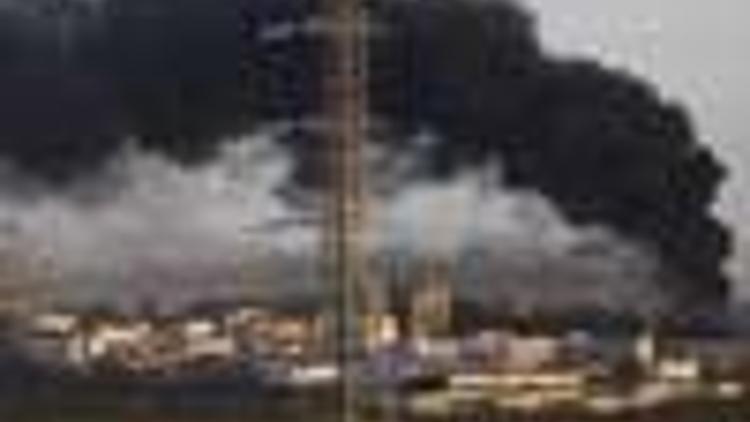Gaza faces bleak future even when bombs stop
Güncelleme Tarihi:

JERUSALEM - Defenseless Gazans, squeezed between Israel, Egypt, and the sea, feel hopeless for a bright future in their homes once the Israeli offensive stops as they have lost all remaining faith in peace.
’A future for Gaza?’ rightly asks a Gazan, adding that her son who will have to carry the scars of war in his mind forever will never believe in peace again.
After another sleepless night of terrifying Israeli bombing in her battered Gaza neighborhood, Um Mohammed was at the end of her tether. "We are scared to death, but where should we go? Does fighting Hamas mean wiping out Gaza?" the mother of five asked. In the thick of a 20-day-old blitz that Israel says is meant to deter Hamas from firing rockets at it, Palestinians focused on survival find it hard to contemplate what lies ahead.
"A future for Gaza?" Um Mohammed queried, taken aback at the question. "Listen, my son is five years old. He will carry these images in his mind forever. Will he ever believe in peace?" So does anyone have a vision for Gaza's 1.5 million people, squeezed between Israel, Egypt and the sea, once the war stops?
The densely populated, 28 mile long strip has seen plenty of misery since refugees uprooted from their land in what is now Israel swarmed into it during the 1948 Arab-Israeli war. After Israel captured Gaza from Egypt in the 1967 war, it seethed under occupation until the 1993 Oslo peace accords sparked brief hope for progress toward Palestinian statehood. For a few years Gaza's economy saw some growth. Optimists dreamed it could become a new Singapore on the Mediterranean. All that crumbled in the violence that erupted in 2000 after the collapse of U.S.-led peace talks. Israel's abrupt unilateral withdrawal from the strip in 2005 only emphasized its physical separation from the West Bank. Israeli border controls kept its people penned in.
Dead end
Gazans have lived under Hamas rule since the Islamist group seized the enclave in 2007, 18 months after it won a Palestinian election against President Mahmoud Abbas's Fatah faction.
Many Palestinian voters were fed up with the perceived corruption of the Palestinian Authority - and with its hapless acquiescence in a U.S.-led "peace process" that went nowhere.
But, their democratic choice led to another dead end. Israel ostracized the Hamas-led government and tightened its economic blockade on Gaza. Life for Gazans became even harsher after Hamas drove its Fatah rivals out, widening the split with the West Bank and weakening Abbas's claim to speak for Palestinians on peace. Now, with over 1,100 Gazans dead, Palestinians are wary of looking beyond the rubble and ruins. "The Gaza war is undermining the peace process, undermining the moderates," said veteran negotiator Saeb Erekat. "You cannot say you want peace and conduct killing fields."
The Islamist group's war aims, apart from reaping prestige by resisting the Israeli onslaught, focus on ending the embargo in return for a truce of up to a year, perhaps renewable, with foreign observers on Egypt's side of the Rafah border crossing. The Iranian-backed Islamists are unlikely to abandon an ideology that Israelis view as a threat to their existence, but once the scale of destruction in Gaza becomes clear, Hamas might decide to put its cross-border rocket attacks on hold.
In turn, Israel says it will be ready to "live and let live" if Hamas submits to its conditions -- end rocket fire, refrain from rearming and release an Israeli soldier captured in 2006. That might be the best short-term outcome, according to Mark Regev, a spokesman for Israeli PMEhud Olmert. "Ultimately, we want a two-state solution, not a three-state solution, so the legitimate Palestinian Authority has to re-establish its control over Gaza," Regev said, denying that Israel intended to have any hand in that process. Palestinian analyst Ali Jarbawi said Gaza's future hung on the outcome of the war: "If Israel can't win by military means, it has to deal with Hamas by political means."
For Palestinians, the notion that Israel sincerely seeks a solution that would end occupation and give them a unified state in the West Bank and Gaza Strip rings hollow. The idea that Hamas can be removed from the equation in favor of "moderates" also seems fanciful, although that has not stopped Israel, the West and some Arab states from pursuing it. Hamas's decision and Israel's devastating response have inflicted a huge cost on Gazans, whose future remains dark.

